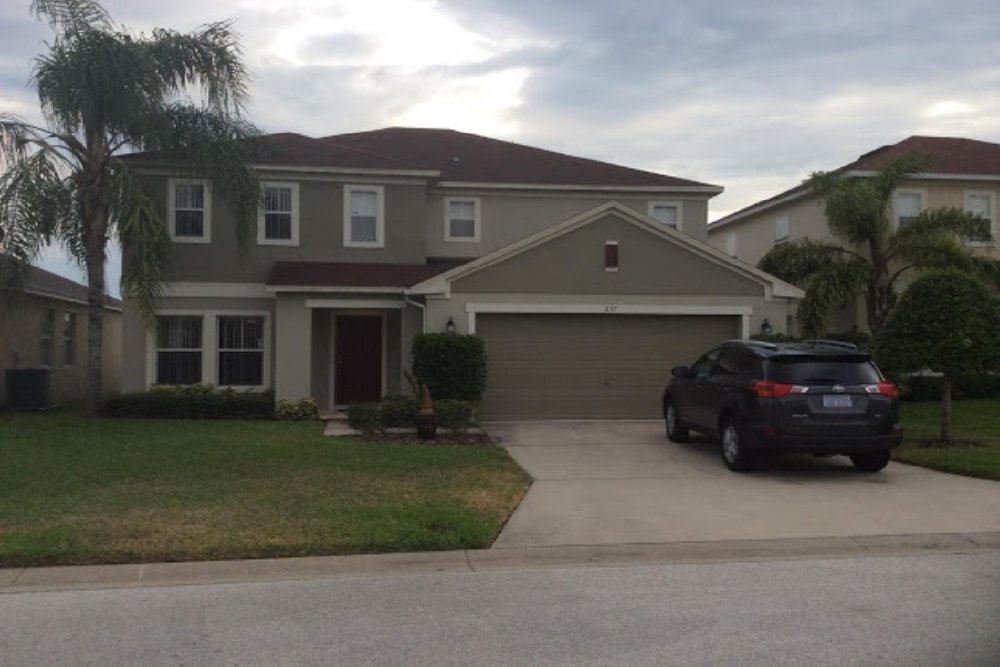During the time of the subprime mortgage crisis between 2007 and 2010, there were a lot of foreclosures, leading to the collapse of the housing market in the US. I thought of investing in real estate in Florida, because in Florida, many British were having a second home there, and unlike other markets, the Florida real estate market was expected to be more buoyant. Florida is the fourth most populous state in the US and for investing landlords that will be translated into a lot of rental demand. The average cost of living in Florida was 1% lower than the national average.
The first hurdle to that end is to engage with a Florida Realtor. I searched on line and I got a website on Assetz properties. I had scores of email communication with the lead sales man in early 2011. Although in traditional property transactions, one can offer a price, but in the case of foreclosures, the prices are fixed.The commission was also fixed as a large sum for any type of property, not 6% of the property value prevalent in the US. The realtor suggested buying a tenanted foreclosure corner property from the bank. The next thing I did was thoroughly studying the locality, sitting at my desk in the UK. The property was in the corridor between Miami and Key West, not far from the Everglades known for its abundant wildlife including alligators and leatherback turtles. There were also other tourist destinations nearby the city, where the property is situated.On the downside, I was also concerned about the devastating hurricanes in 1992 and 2005. However I decided to take a risk to buy there in view of the upcoming nature of the city and low property prices. At this stage one should apply to banks if a mortgage is required for this investment.
The next step was to get the property surveyed, in the US it is called home inspection. If any significant issues, were flagged up, I would not have bought it. Again I searched online and got an inspection company called Atlantic at Miami, who required the fee upfront. I paid by credit card, and got the survey report. The report was pretty good, except for minor issues, and the agent assured that the seller would fix them prior to the closing date. As I had made my mind up, I had to pay the commission of Assetz to progress the matter. Then I signed an eight page purchase contract which contained details of seller, price, details of property, closing date and penalty for default. I exchanged pound sterling to US Dollars through my local bank to put a non-refundable deposit and signed a reservation form. Unlike in the UK , properties are not transacted through conveyancing solicitors. In the US it is done through independent title companies which are regulated by the US department for Housing and Urban Development (HUD). Funds from the buyer are deposited in the title company escrow (ring fenced) account and only released to the seller (in this case bank) once the title insurance is issued by the title company where a clean title is assured. In order to pay the large sum to close the account, I was advised by Assetz to open an account with then Wachovia Bank. It was not that easy and I needed to provide a letter from my bank and other documents to get the account opened. Nowadays, to open a US bank account is even tougher, as the bank needs a US address and one’s physical presence in the US. The title company sent the title in duplicate to me by courier, which I needed to complete and then swear an affidavit in the presence of a UK notary public. I returned the documents to the address of the title company in the US. Once they finished the counter signing, they returned it for my safe keeping, one original title document with embossing seals and golden wafers. Comparing the UK system, I noticed that when one signs American documents, one needs to put the whole name, not signature. In this case of buying a foreclosure property, it took just over a month. But if the buyer needs to borrow money, it can take a longer period.
As described above,I did not physically viewed the property before buying, and I relied on the home survey report. There was a private tenant inside and from the next month onwards I was getting the rent credited through my agent Gamal. The outgoings included, property tax, insurance and the monthly fee for my agent. The net return worked out to be over 17% on the investment. Subsequently I visited the property several times and with the permission of the tenant I took a full video clip of the property. Earning in the US requires submitting a tax return to Internal Revenue Service (IRS) every year. For this I had to get Individual Taxpayer Identification Number (ITIN), which I managed to get through an attorney. Later, the private tenant struggled to pay rent and she left. After that I got a tenant through the HUD. Depending on the income of the prospective US homeless tenants, HUD will determine how much the government will contribute towards rent (Section 8 payment) and how much the tenant needs to pay directly. Therefore, every month the agent collects rent from the tenant, and the HUD portion is directly credited into the my account. From time to time the tenants moved out and there were periods without tenants, when the repair of the 8 year old four bedroom was carried out. In 2017 there were three hurricanes in South Florida causing severe devastation in the area. My property was boarded up and the tenant was moved into a community disaster accommodation. Hurricane Irma sowed damages to my property, and after the repair, the tenant reoccupied the house. In Florida, especially in the south, one need to be prepared for damage during the hurricane season. The recent history of the area showed that in 2005 hurricane Wilma completely destroyed all of the built up area in which my property was located. The house I bought was built after hurricane Wilma. Although I had an insurance cover,I felt it was like getting blood out of a stone dealing with the insurance hierarchy! The hurricane Irma and the damage it caused persuaded me to sell the property.
I informed the agent, who was also running a real estate business, that I intended to sell the property . The property prices in that area appreciated a lot in eight years. The commission in the US is generally 6% for selling a property. I initially signed a contract with the agent stating that he will be the sole agent for the next three months. He started advertising in the press and internet media, erected a ‘For sale’ sign board and organized ‘open days’ for viewing the property.The second viewer liked the property and he paid a deposit to the agent. I signed a sale contract, in which the closing date was after three months, as he needed to get mortgage approval. Again mortgage approval also was a bureaucratic nightmare for me. The bank appointed an independent appraiser to visit the property and suggested property survey and ‘due diligence’ which resulted in a lower value than the agreed price. I agreed to reduce the price slightly, to facilitate the process of pre approval of mortgage. Then there was ‘ a final walk through’, and closing document preparation. Since the bank did not transfer the fund to the title agent, the closing date was extended for which I had to sign another document. At last the closing was done and the money was transferred to my bank account in the US.
I also had the experience of buying a large fully furnished property in the Orlando area with swimming pool, which I visited prior to buying. The British owners from whom I bought were running it as holiday let. I tried to generate income through holiday lettings, but I was not fully successful. This property was a white elephant as I required to pay huge utility bills, agent’s monthly fees, linen washing fees,internet fees, garden maintenance fees, pool maintenance fees,security alarm fee,Home owner\'s Association fee (HOA), Miami-Dade tax, Property insurance, Tourist tax and so on. My relatives and myself stayed there a few times. After a couple of years I sold the property, going through the same hurdles as above.
Owning properties abroad is a thrilling experience, and if done carefully it can help one financially. When investing in property,one should research the locality,political situation, regulations, the movement of the property market, demography of population, the potential return and above all how easily one can dispose it of. In this time of next to nothing interest rate, investing in bricks and mortar is a shrewd proposition. BY DR.C.J.GEORGE


Comment Form